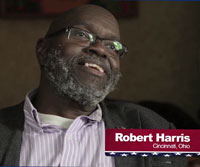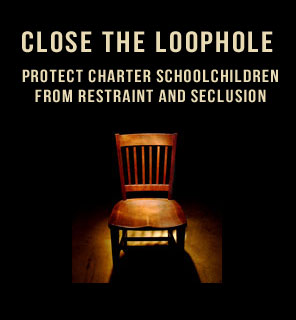News & Commentary
Disability Rights Ohio calls for Enforcement of Ohio Department of Education Rule on Restraint and Seclusion
By Danielle Gray

Ohio is Often the Spotlight for Elections
Diana Mairose is a voting rights advocate who works as an Advocacy Support Advisor for Hamilton County Developmental Disabilities Services.
By Diana Mairose

Ohio Must Stop Executions of People with Severe Mental Illness
The American Civil Liberties Union of Ohio supports a bipartisan bill which seeks to spare those with severe and persistent mental illness from facing execution in the state of Ohio. This bill came out of the Ohio Supreme Court Task Force, which recommends an end to this barbaric practice. Cruel and Unusual In 2002, the U.S. Supreme Court declared it unconstitutional to execute someone deemed mentally incompetent due to a diagnosed intellectual disability (formally referred to as mental retardation). This ruling paved the way for a 2005 U.S. Supreme Court decision that declared it unconstitutional to execute people who were minors at the time of their crime. Both decisions reflect an understanding of the Eight Amendment to the U.S. Constitution which prohibits cruel and unusual punishment. Just as with youth and those with a diagnosed intellectual disability, people with a severe and persistent mental illness lack the culpability required to receive a death penalty sentence. In other words, it is cruel and unusual punishment to put someone to death who does not or did not have the capacity to understand their crime or what their punishment means. Equal Protection for All Supporters of banning the execution of individuals with severe and persistent mental illness also cite the 14th Amendment to the U.S. Constitution, which promises “equal protection and due process” under the law. Individuals with severe and persistent mental illness are not receiving equal protection by the same bans that acknowledge diminished capacity and substantial impairment for individuals with intellectual disabilities. This right should apply to whomever experiences significant, diagnosed, diminished mental functioning as a result of any psychological disability.
By Avery Martens

The Ohio Constitution Shouldn’t Define Anyone as an “Idiot” or “Insane Person”
The lack of procedure for determining who is “insane” or an “idiot” could allow persons whose opinions are unpopular or whose lifestyles are disapproved to be challenged at the polls, and they may lose their right to vote without the presentation of any medical evidence whatsoever.[1]
For reasons that are not clear, the General Assembly did not present this issue to voters. It remains a section of our constitution that is not only problematic because of the way in which it uses pejorative terms, but also because of its vagueness. This provision could be used to disqualify any voter whom poll workers deem incompetent.
During the meeting this past Thursday, 11 November 2015, University of Akron School of Law Emeritus Professor Wilson Huhn testified on behalf of the ACLU.
Read Professor Will Huhn’s testimony to the Constitutional Modernization Committee.

Stay Informed
Sign up to be the first to hear about how to take action.
By completing this form, I agree to receive occasional emails per the terms of the ACLU’s privacy statement.
By completing this form, I agree to receive occasional emails per the terms of the ACLU’s privacy statement.





